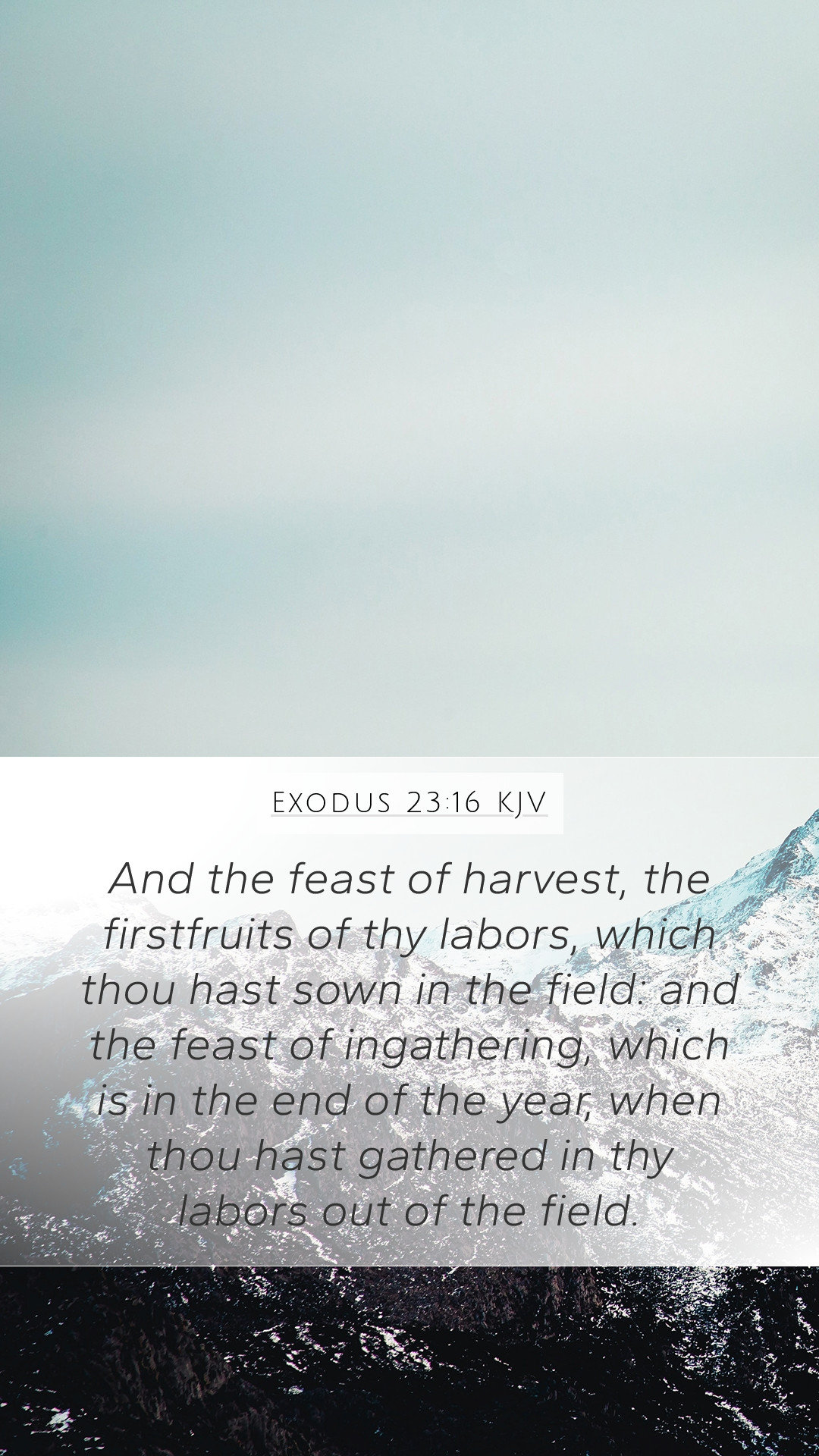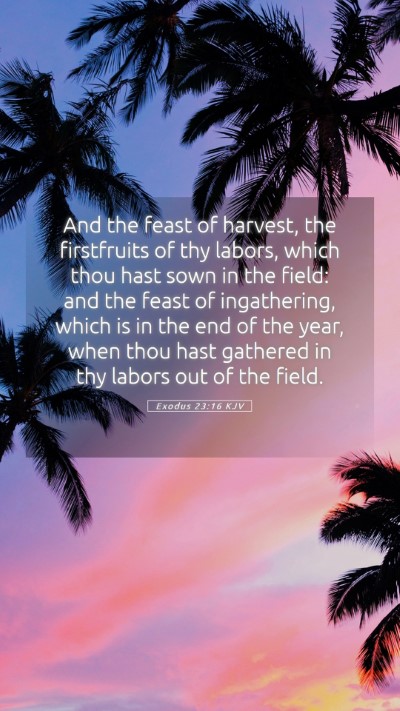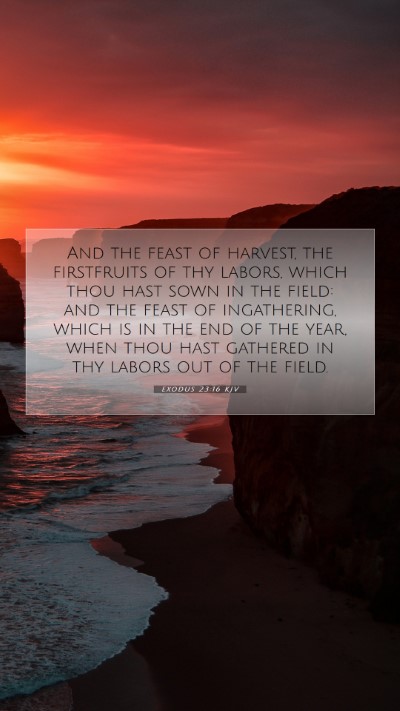Understanding Exodus 23:16
Bible Verse: Exodus 23:16 - “And the feast of harvest, the firstfruits of your labors, which you have sown in the field: and the feast of ingathering, which is in the end of the year, when you have gathered in your labors out of the field.”
Overview of the Verse
This verse from Exodus is part of a larger context where God provides the Israelites with laws and instructions for their worship and practice. Exodus 23:16 specifically addresses two significant feasts: the Feast of Harvest and the Feast of Ingathering. Each of these feasts has deep agricultural significance and spiritual implications for the people of Israel.
Bible Verse Meanings and Interpretations
Commentary insights from renowned biblical scholars such as Matthew Henry, Albert Barnes, and Adam Clarke provide valuable context and interpretation of this verse. Here are some key points from their writings:
-
Matthew Henry:
Henry emphasizes the importance of recognizing God's provision in the agricultural cycle. The Feast of Harvest celebrates the first fruits of the earth, symbolizing gratitude and acknowledgment of God as the ultimate source of sustenance. This act of thanksgiving is not only communal but fosters a sense of dependence on God.
-
Albert Barnes:
Barnes highlights the observational nature of the feasts, suggesting that these celebrations were intended to bring the community together in worship and remembrance of God's faithfulness. He underscores that the timing of these feasts correlates with the agricultural calendar, reinforcing the relationship between physical needs and spiritual obligations.
-
Adam Clarke:
Clarke notes the significance of the term "firstfruits," pointing out its connection to the concept of dedicating the beginning of one's harvest to God. This principle is foundational in biblical stewardship and sets a precedent for the giving of tithes and offerings in later scriptures.
Historical Context
Understanding the historical context is crucial for interpreting this passage accurately. The Israelites were primarily agrarian, relying heavily on the land's produce. The regulations surrounding these feasts were integral to their identity as God’s chosen people, establishing a rhythm of life that intertwined physical labor with spiritual practice.
Bible Study Insights
For those engaging in Bible study groups or seeking online Bible study resources, Exodus 23:16 provides a rich ground for exploration. Here are some insights for further reflection:
- The role of gratitude in the life of a believer.
- How agricultural practices symbolize spiritual truths.
- The communal aspect of worship and celebration in biblical times.
- Application of seasonal festivals in modern Christian practice.
Application of the Verse
This verse encourages contemporary believers to reflect on the meaning of their labor and the ways they acknowledge God's role in their lives. It's a call to incorporate spiritual reflection into the everyday act of work, recognizing that all blessings come from God, and should be returned to Him in gratitude.
Related Bible Cross References
Exodus 23:16 has meaningful connections to other passages in Scripture, allowing for an enriched understanding of the themes of harvest and thanksgiving:
- Leviticus 23:10-22 - Instructions for the Feast of Firstfruits and the Feast of Weeks.
- Deuteronomy 16:9-12 - Further instructions on celebrating the harvest and providing for the Levites and the poor.
- 1 Corinthians 15:20 - Discussion on Christ as the firstfruits of those who have died, bridging the concept of material and spiritual harvest.
Conclusion
In conclusion, Exodus 23:16 serves as a profound reminder of the significance of recognizing God's provision in our lives through the lens of the agricultural festivals He ordained for His people. Engaging with this verse through personal study and group discussions provides an opportunity for deeper Bible verse understanding and biblical exegesis.


